Ethics of the 19 -20 th centuries

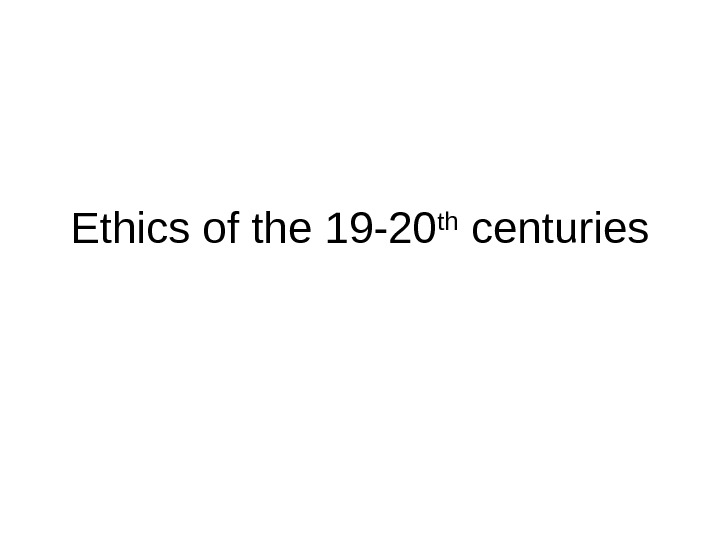
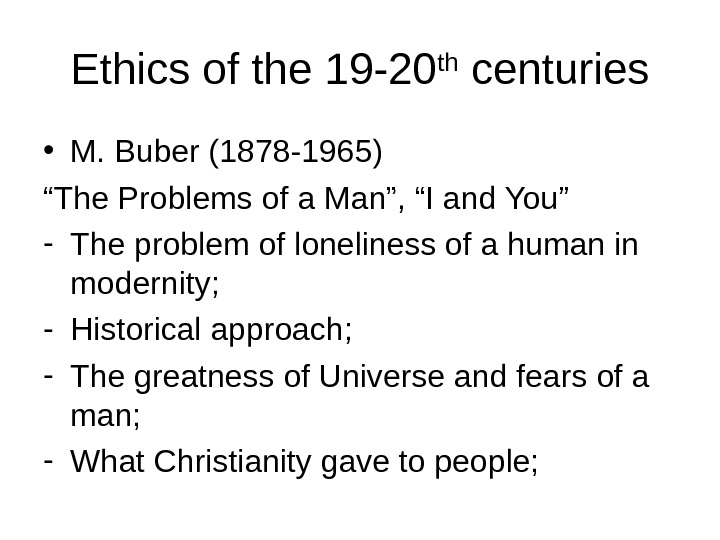
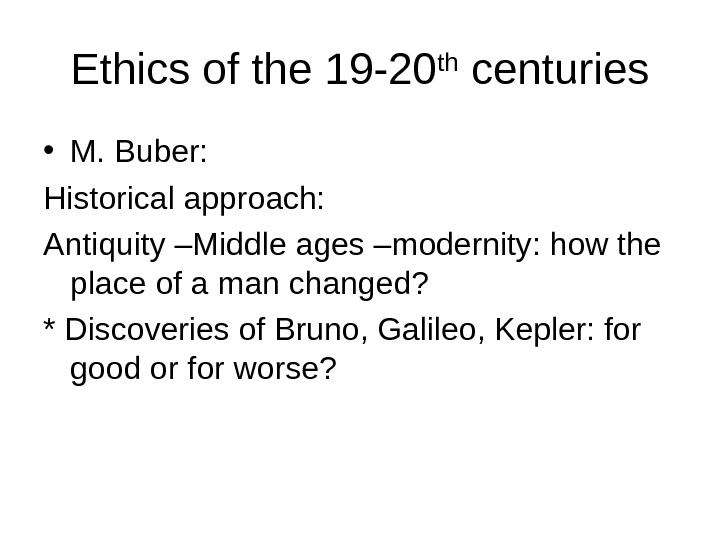
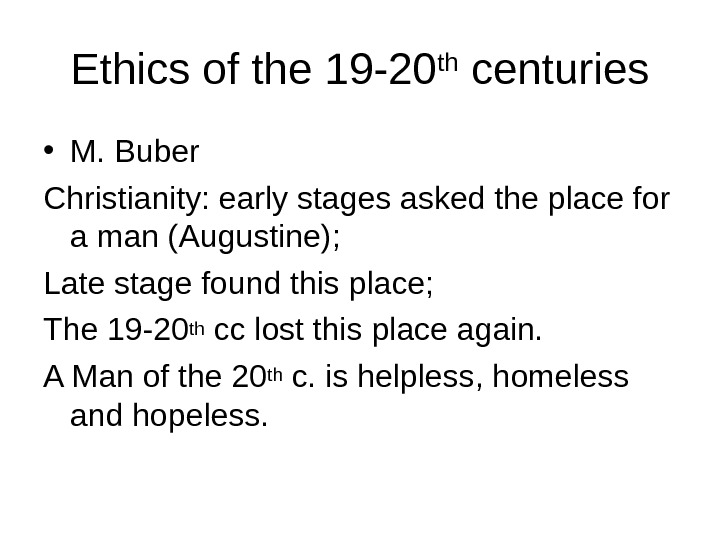
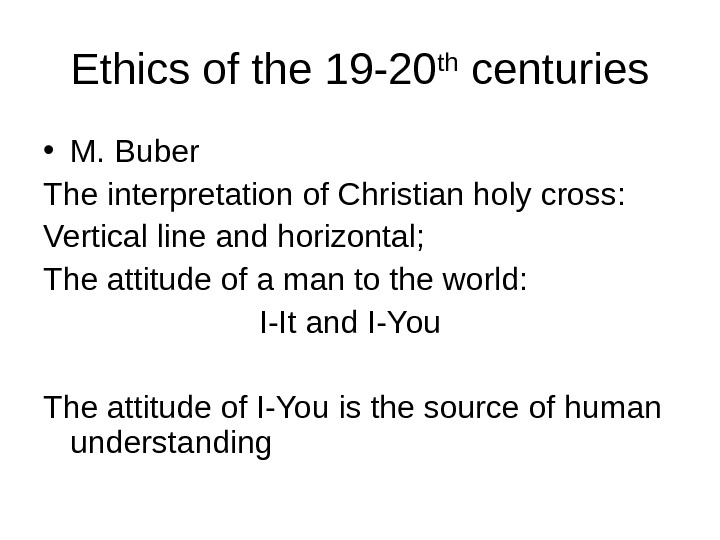
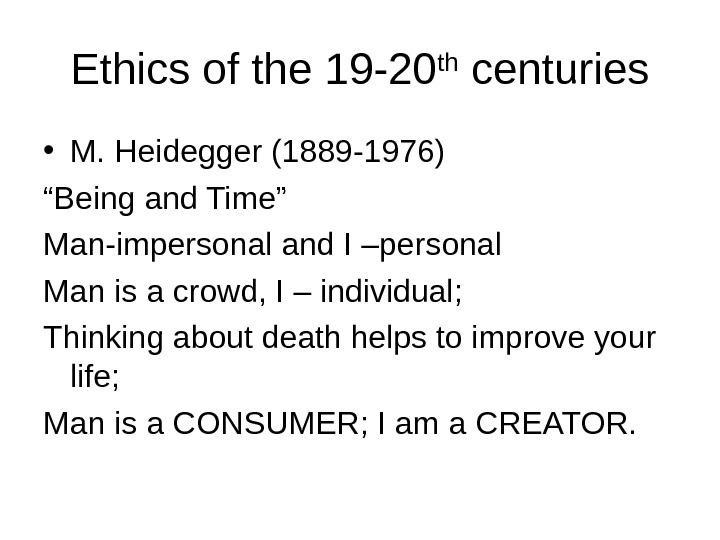
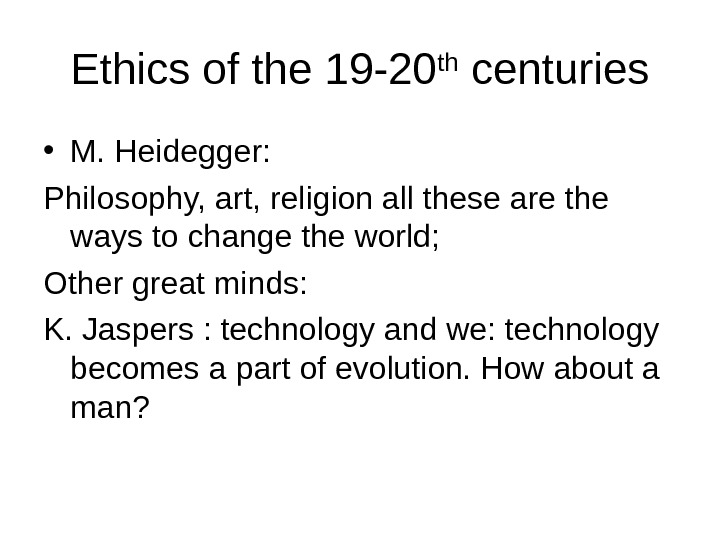
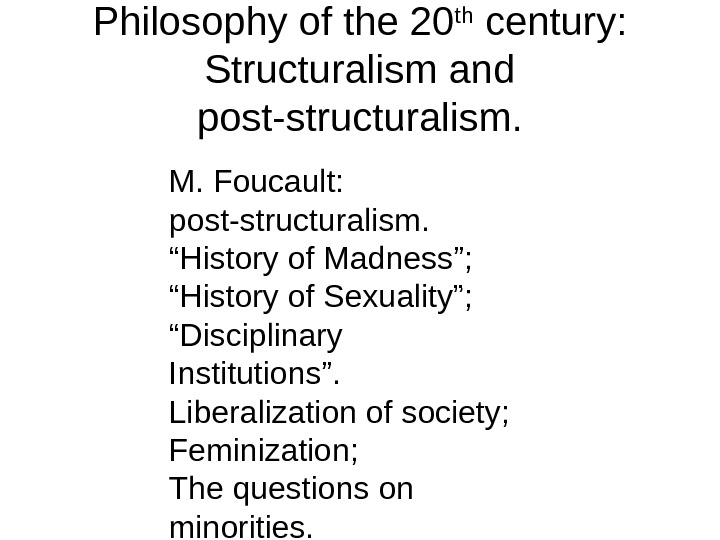
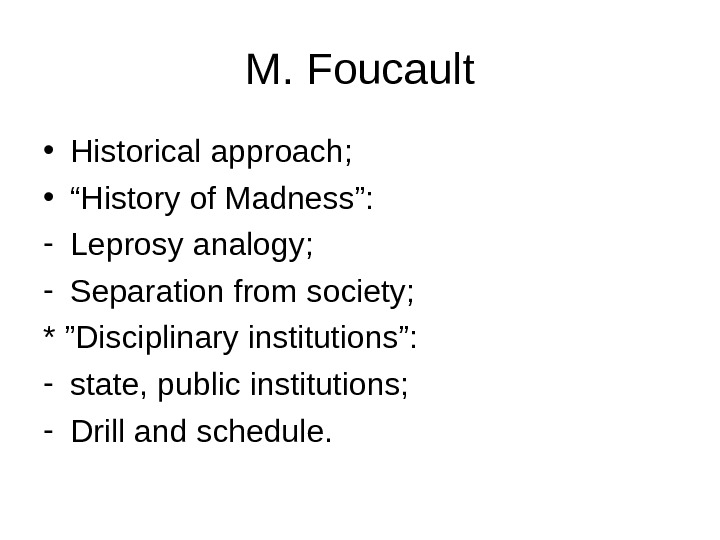
- Размер: 28 Кб
- Количество слайдов: 9
Описание презентации Ethics of the 19 -20 th centuries по слайдам
 Ethics of the 19 -20 th centuries
Ethics of the 19 -20 th centuries
 Ethics of the 19 -20 th centuries • M. Buber (1878 -1965) “ The Problems of a Man”, “I and You” — The problem of loneliness of a human in modernity; — Historical approach; — The greatness of Universe and fears of a man; — What Christianity gave to people;
Ethics of the 19 -20 th centuries • M. Buber (1878 -1965) “ The Problems of a Man”, “I and You” — The problem of loneliness of a human in modernity; — Historical approach; — The greatness of Universe and fears of a man; — What Christianity gave to people;
 Ethics of the 19 -20 th centuries • M. Buber: Historical approach: Antiquity –Middle ages –modernity: how the place of a man changed? * Discoveries of Bruno, Galileo, Kepler: for good or for worse?
Ethics of the 19 -20 th centuries • M. Buber: Historical approach: Antiquity –Middle ages –modernity: how the place of a man changed? * Discoveries of Bruno, Galileo, Kepler: for good or for worse?
 Ethics of the 19 -20 th centuries • M. Buber Christianity: early stages asked the place for a man (Augustine); Late stage found this place; The 19 -20 th cc lost this place again. A Man of the 20 th c. is helpless, homeless and hopeless.
Ethics of the 19 -20 th centuries • M. Buber Christianity: early stages asked the place for a man (Augustine); Late stage found this place; The 19 -20 th cc lost this place again. A Man of the 20 th c. is helpless, homeless and hopeless.
 Ethics of the 19 -20 th centuries • M. Buber The interpretation of Christian holy cross: Vertical line and horizontal; The attitude of a man to the world: I-It and I-You The attitude of I-You is the source of human understanding
Ethics of the 19 -20 th centuries • M. Buber The interpretation of Christian holy cross: Vertical line and horizontal; The attitude of a man to the world: I-It and I-You The attitude of I-You is the source of human understanding
 Ethics of the 19 -20 th centuries • M. Heidegger (1889 -1976) “ Being and Time” Man-impersonal and I –personal Man is a crowd, I – individual; Thinking about death helps to improve your life; Man is a CONSUMER; I am a CREATOR.
Ethics of the 19 -20 th centuries • M. Heidegger (1889 -1976) “ Being and Time” Man-impersonal and I –personal Man is a crowd, I – individual; Thinking about death helps to improve your life; Man is a CONSUMER; I am a CREATOR.
 Ethics of the 19 -20 th centuries • M. Heidegger: Philosophy, art, religion all these are the ways to change the world; Other great minds: K. Jaspers : technology and we: technology becomes a part of evolution. How about a man?
Ethics of the 19 -20 th centuries • M. Heidegger: Philosophy, art, religion all these are the ways to change the world; Other great minds: K. Jaspers : technology and we: technology becomes a part of evolution. How about a man?
 Philosophy of the 20 th century: Structuralism and post-structuralism. M. Foucault: post-structuralism. “ History of Madness”; “ History of Sexuality”; “ Disciplinary Institutions”. Liberalization of society; Feminization; The questions on minorities.
Philosophy of the 20 th century: Structuralism and post-structuralism. M. Foucault: post-structuralism. “ History of Madness”; “ History of Sexuality”; “ Disciplinary Institutions”. Liberalization of society; Feminization; The questions on minorities.
 M. Foucault • Historical approach; • “ History of Madness”: — Leprosy analogy; — Separation from society; * ”Disciplinary institutions”: — state, public institutions; — Drill and schedule.
M. Foucault • Historical approach; • “ History of Madness”: — Leprosy analogy; — Separation from society; * ”Disciplinary institutions”: — state, public institutions; — Drill and schedule.

